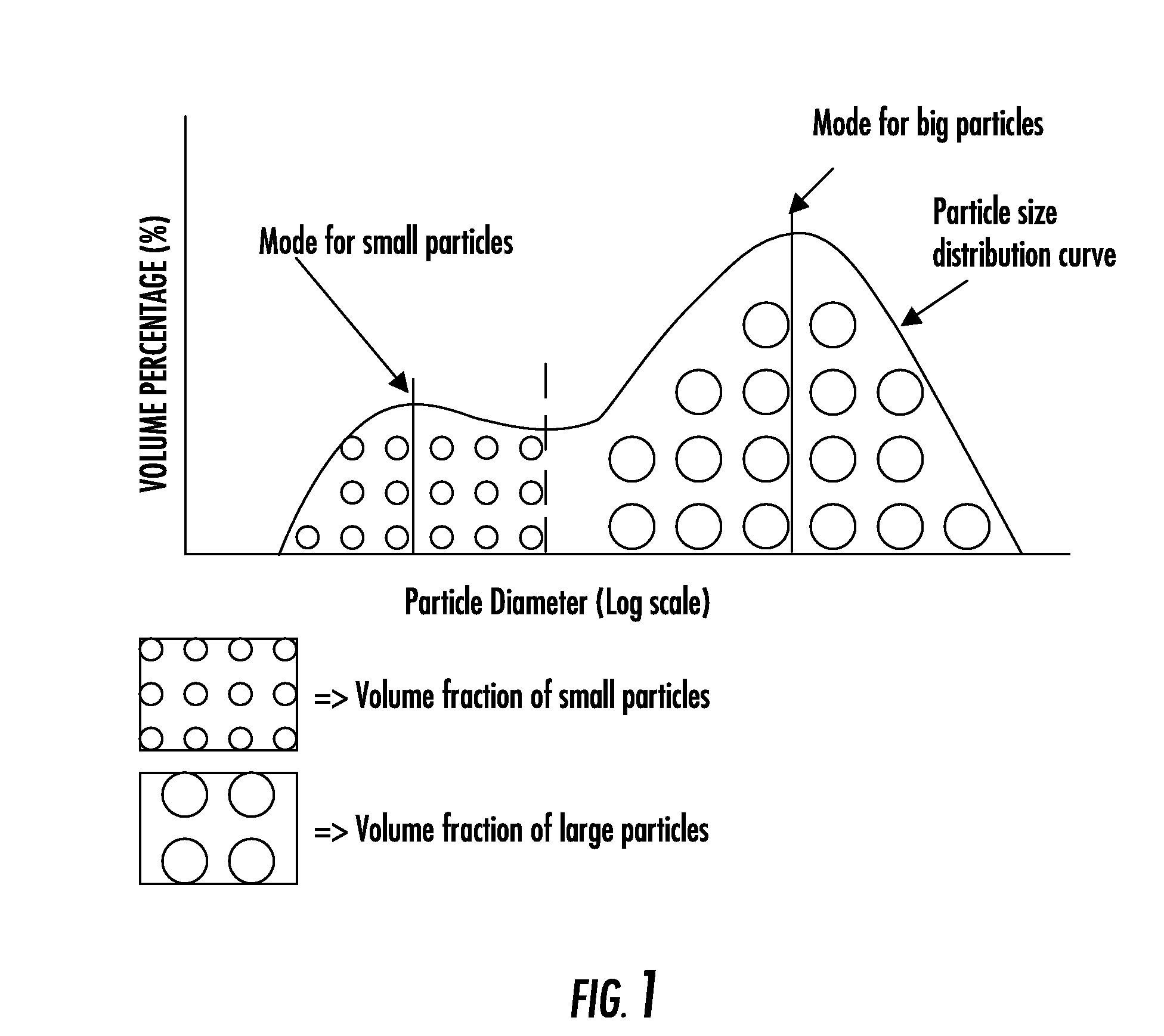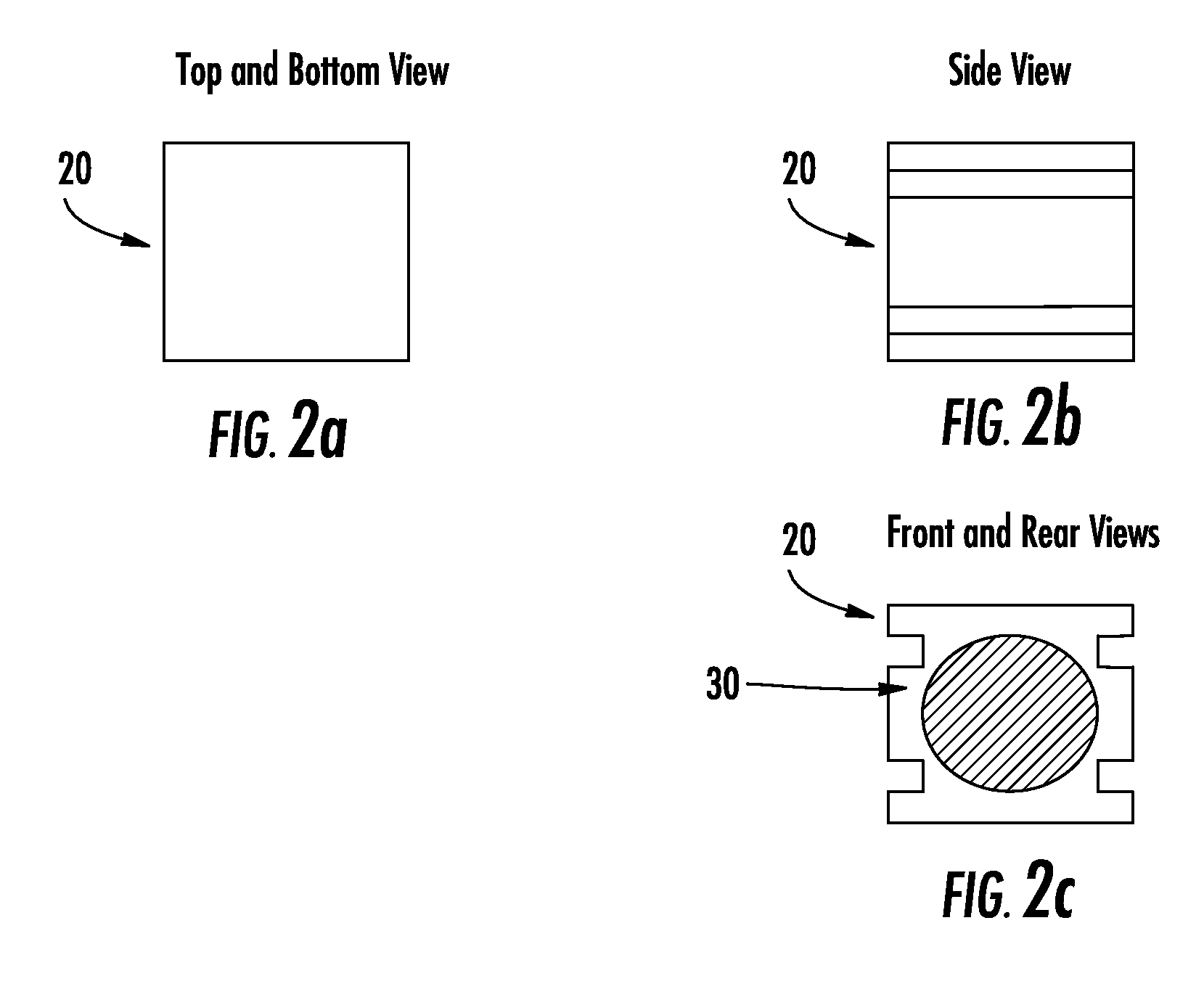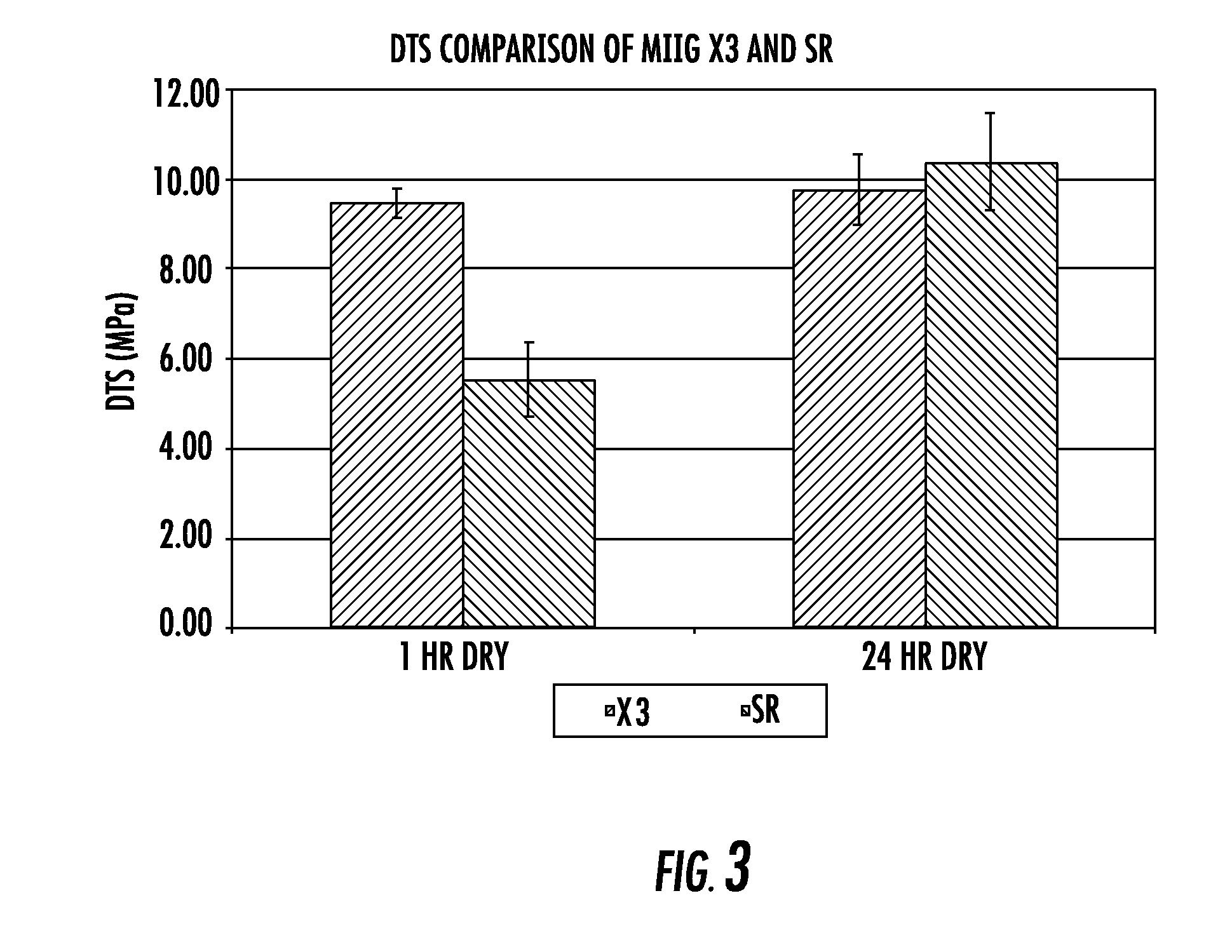Composite bone graft substitute cement and articles produced therefrom
- Summary
- Abstract
- Description
- Claims
- Application Information
AI Technical Summary
Benefits of technology
Problems solved by technology
Method used
Image
Examples
example 1
[0111] Diametral tensile strength, dissolution properties, and in vivo evaluation of new bone ingrowth and residual material of bone graft cements of the invention were compared to a commercially available calcium sulfate material. The experimental group for all experiments was an embodiment of the current invention including a cement consisting of 74.906 weight percent calcium sulfate hemihydrate, 0.094 weight percent accelerator (sucrose coated calcium sulfate dihydrate), 6.7 weight percent monocalcium phosphate monohydrate, 8.3 weight percent beta tricalcium phosphate powder, 10 weight percent beta tricalcium phosphate granules, and an aqueous solution of 0.6 molar glycolic acid neutralized to a pH of 7.00 with 10 normal sodium hydroxide solution (hereinafter “SR”). MIIG®X3 Bone Graft Substitute (hereinafter “X3”) (Wright Medical, Arlington, Tenn.) calcium sulfate was used as a control for all experiments. The SR material was formulated to set in 14-19 minutes, whereas the X3 mat...
example 2
Materials and Method:
[0122] Under an IACUC-approved protocol, 10 skeletally mature, male dogs (25-32 kgs) had a critical-size, axial medullary defect (13 mm dia×50 mm) created bilaterally in the proximal humerus and were studied for 13 (n=5) and 26 (n=5) weeks. The defect in one humerus was injected with 6 cc of the test material (SR cement according to Example 1). An identical defect in the contralateral humerus received an equal volume of CaSO4 pellets (OSEOSET® pellets, Wright Medical). Radiographs were obtained at 0, 2, 6, 13 and 26 weeks. Transverse, undecalcified stained sections of the bones were prepared. The area fractions of new bone and implanted residual materials in the defects were quantified using standard point-counting techniques. The sections were also examined using high-resolution contact radiographs. The yield strength and modulus of an 8 mm dia.×20 mm test cylinder cored from the midlevel of each defect was determined in unconfined, uniaxial compression tests...
example 3
Materials and Method:
[0128] 250 mL of mixing solution, 0.6M glycolic acid neutralized with sodium hydroxide, was created and the pH was noted with a calibrated pH meter. The solution was made using crystalline glycolic acid (Alfa Aesar Part # A12511; Ward Hill, Mass.), 10N sodium hydroxide solution (EMD Chemicals Part # SX0607N-6; Darmstadt, Germany), and USP water for irrigation (Baxter Healthcare Corporation Part #2F7112; Deerfield, Ill.).
[0129] The solution was then divided into two 125 mL aliquots and then individually rebottled. One of the bottles was sent out for bulk gamma radiation sterilization, 25-32 kGy dose, and the other was retained as an unsterilized control. Upon return of the sterilized solution the pH of both the sterilized and the non-sterilized solutions were checked with a calibrated pH meter and noted.
[0130] A single lot of SR powder of the type utilized in Example 1 was used in this study to avoid lot-to-lot variability in set time and injection forces.
[0...
PUM
| Property | Measurement | Unit |
|---|---|---|
| Temperature | aaaaa | aaaaa |
| Length | aaaaa | aaaaa |
| Length | aaaaa | aaaaa |
Abstract
Description
Claims
Application Information
 Login to View More
Login to View More - R&D
- Intellectual Property
- Life Sciences
- Materials
- Tech Scout
- Unparalleled Data Quality
- Higher Quality Content
- 60% Fewer Hallucinations
Browse by: Latest US Patents, China's latest patents, Technical Efficacy Thesaurus, Application Domain, Technology Topic, Popular Technical Reports.
© 2025 PatSnap. All rights reserved.Legal|Privacy policy|Modern Slavery Act Transparency Statement|Sitemap|About US| Contact US: help@patsnap.com



